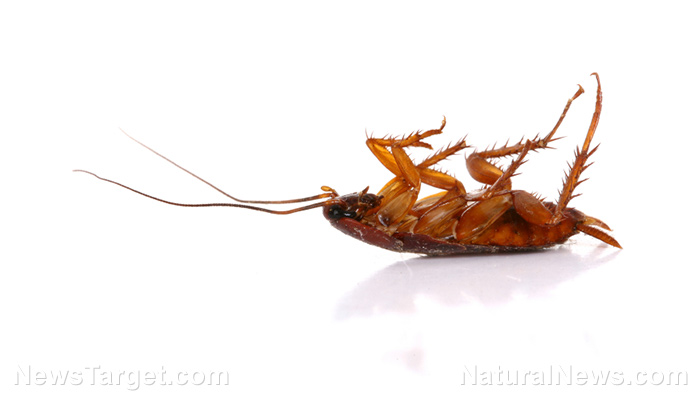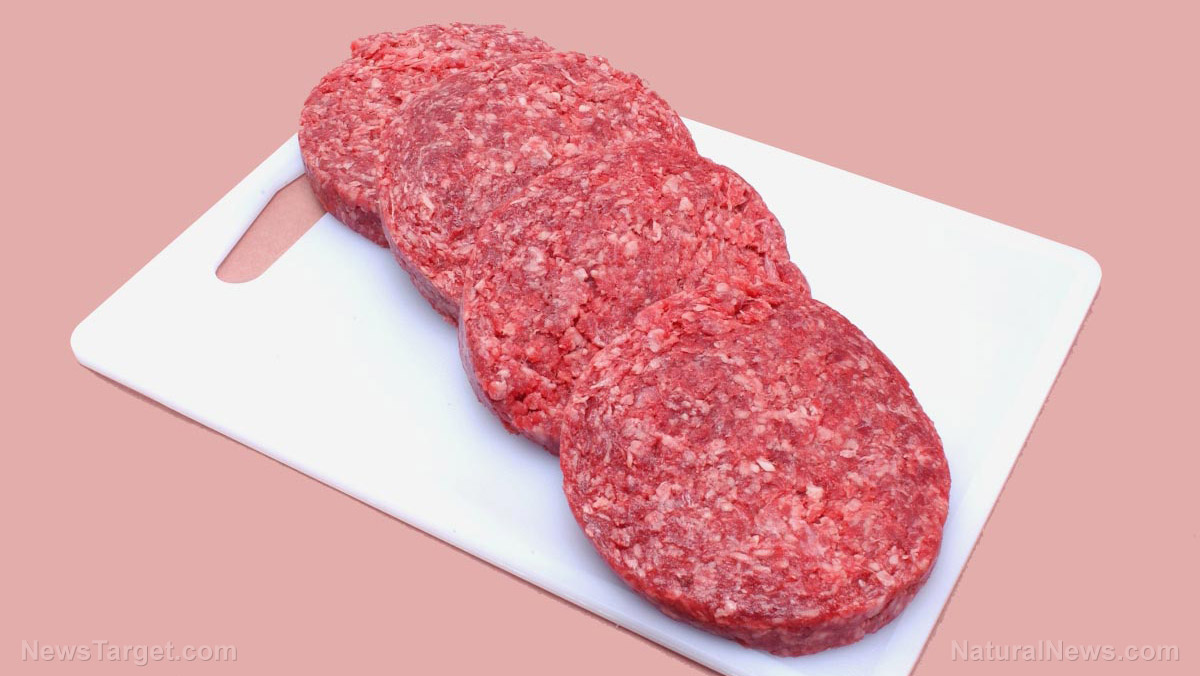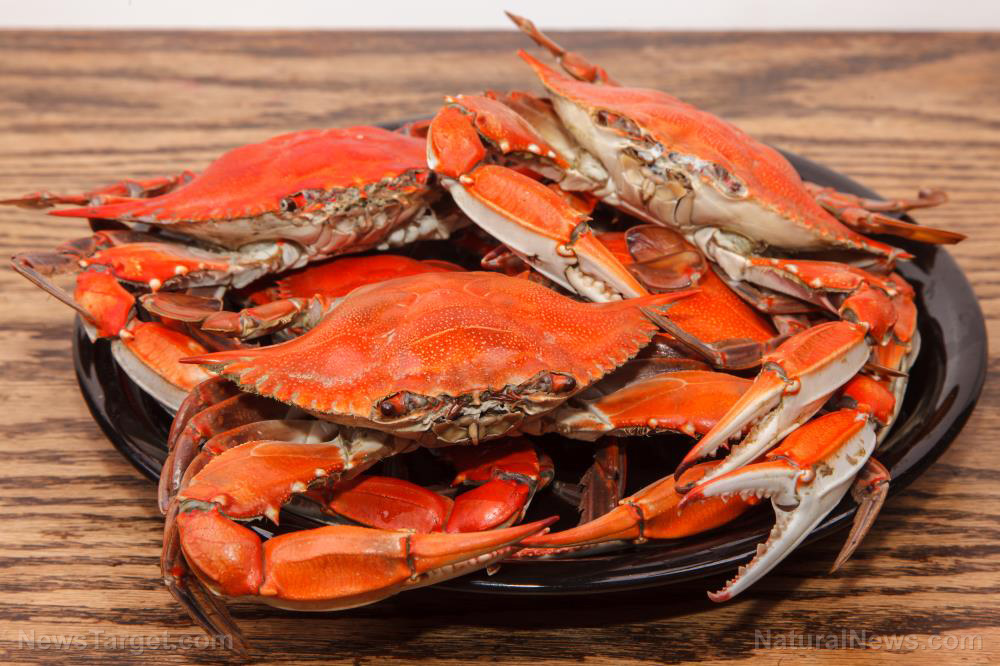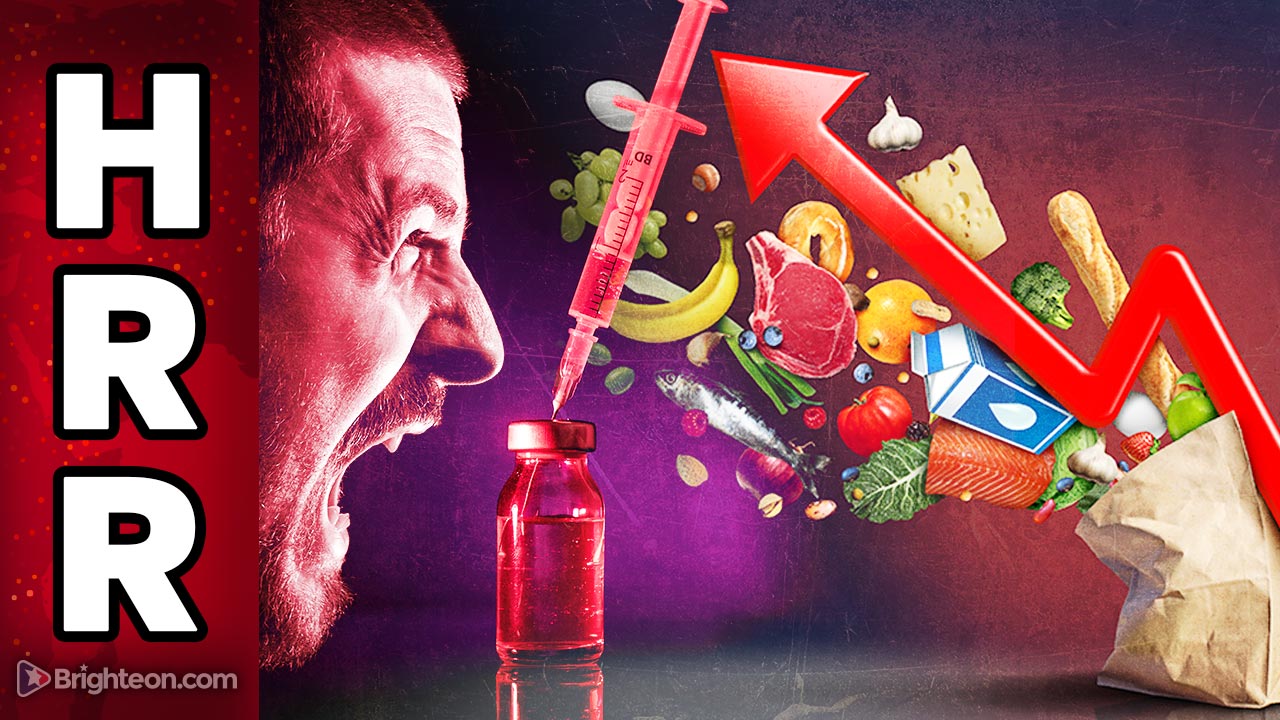Vegan alternative proteins “tainted” by meat companies’ investments, say critics
10/24/2022 / By Belle Carter

As the globalist propaganda deeming animal protein sources as hazardous to the environment ramps up, the demand for alternative protein sources has also started to increase. The Sustainable Protein System (SPS) seeks to address this demand, but it appears that companies focused on animal proteins are bankrolling this endeavor.
Established in 2004, the Netherlands-based Food Valley is responsible for running the SPS. Its website explains that the SPS seeks to tap the “potential for localized protein production chains to improve quality and availability. Also, tapping into existing animal-protein and cross-crop knowledge can be a valuable source for rapid technology transfer for alternative protein applications.”
Food Valley’s headquarters in the Dutch town of Wageningen gathers more than 6,500 scientists under the SPS. Some of the “alternative proteins” endorsed at the company’s HQ include insects, algae, fungi and mycobacteria. The main focus, however, is on plant-based alternatives to meat.
More than 60 multinational firms – including Kraft Heinz, Nestlé, Cargill, Kikkoman and Dupont – have invested in the Food Valley. Unilever, meanwhile, built an €85 million ($83.81 million) Foods Innovation Center in the town to conduct research on “plant-based ingredients and meat alternatives.” Plant-based food giant Upfield also established a Food Science Center, albeit at a lower cost of €50 million ($49.30 million). (Related: Bill Gates quietly pushing globalist-backed FAKE MEAT by investing in companies that manufacture it.)
In a piece for UnHerd, farmer and historian John Lewis-Stempel divulged that there are currently no less than 3,500 multinational small and medium-sized enterprises (SME) at the Food Valley.
“This is a remarkable number of which are vegan start-ups,” he wrote. “They can smell the money, and vegan ethics invariably melt when some suit from a [corporate entity] opens the wallet – even when that suit is from the very meat industry vegans profess to despise.”
Lewis-Stempel mentioned that the “flow of tainted money into veganism” began in 2016, with meat processing giant Tyson Foods having a five percent stake in fake meat startup Beyond Meat. Two years later in 2018, Unilever bought Dutch fake meat company De Vegetarische Slager for an estimated €30 million ($29.58 million). In 2021, Brazilian meat giant JBS bought fake meat firm Vivera for €341 million ($336.32 million).
Strong culture of secrecy in Food Valley
According to Lewis-Stempel, any vegan SME settling in Food Valley need not worry about funding.
“Food Valley is subsidized by the Dutch state and the European Union. Both have pumped hundreds of millions of euros into Food Valley. In 2020, the Dutch Research Council granted €1.7 million for a single research project into animal-free milk protein.”
Lewis-Stempel also pointed out that transparency in Food Valley, especially with regard to the ingredients of alternative proteins it promotes, is limited.
“Will meat substitutes actually provide us with any nutrients at all? We won’t know. The exact composition of the product will be, of course, a corporate, patented secret – meaning anyone who wants the ability to feed themselves in a world without farm animals will have to cough up [money].”
One example he mentioned was the faux steak being pushed as an alternative to the real thing. He wrote: “You can bet that the principal ingredients are wheat gluten, soy and water – so add a carbohydrate-induced obesity epidemic to the enervation of the masses.”
Lewis-Stempel also referenced an instance involving Dutch investigative journalist Vincent Harmsen who sued Wageningen University & Research, the Food Valley’s driving force. When Harmsen went to court asking the university to release information about its scientists’ connection to agrochemical firms Syngenta, Monsanto and Bayer, the court upheld the university’s right to not say anything.
The historian ultimately commented that industrially produced crops will be fed into factories owned by food multinationals and transformed into a meat substitute. “Big Veganism will kill home cooking, meals made out of prime ingredients, which is a form of freedom, a creative act,” Lewis-Stempel said.
Check out FrankenFood.news for more stories about lab-grown food.
Watch this video that expounds on the lies surrounding lab-grown fake meat.
This video is from the Energy Matters, LLC channel on Brighteon.com.
More related stories:
Another “plant-based” fake meat company, Planterra, bites the dust.
Nobody wants fake meat because it’s disgusting, expensive and “woke.”
Fake meat grown in labs might make investors rich, but it’s a nightmare for human health.
YouTube vegan video celebrities exposed for secretly eating meat after experiencing health problems.
Sources include:
Submit a correction >>
Tagged Under:
alternative proteins, Collapse, fake meat, food collapse, food supply, Food Valley, John Lewis-Stempel, lab-grown meat, meat analogues, meat companies, Netherlands, secrecy culture, Sustainable Protein System, Wageningen
This article may contain statements that reflect the opinion of the author
RECENT NEWS & ARTICLES
COPYRIGHT © 2017 FOOD SUPPLY NEWS




















